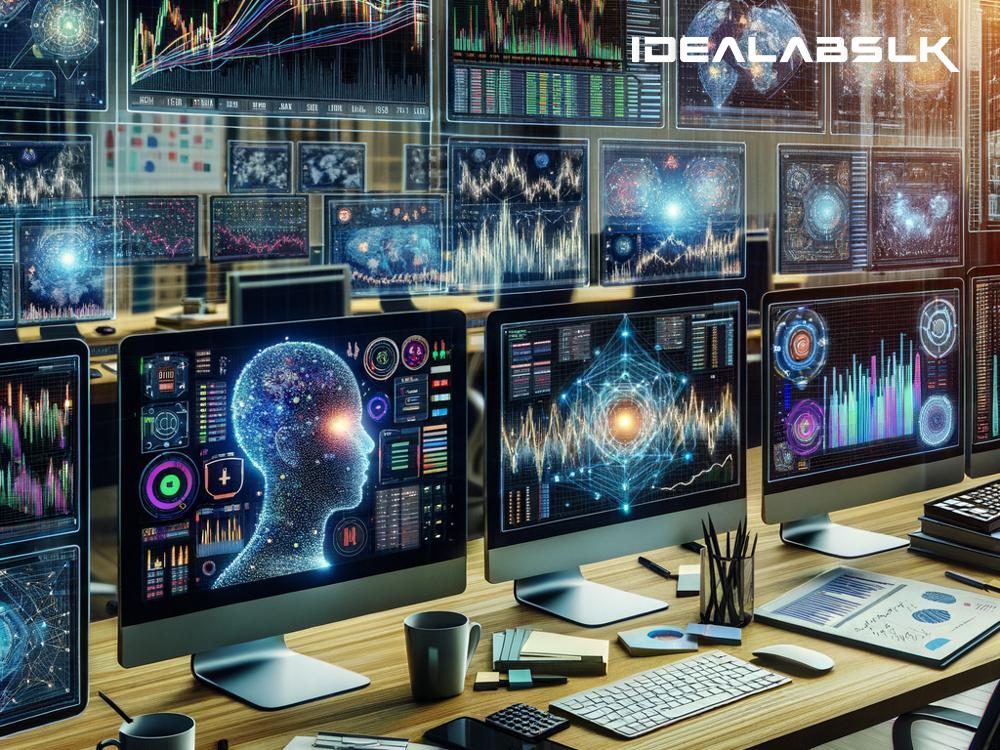AI in Trading: Unlocking the Future of Stock Market Forecasting
In the fast-paced world of the stock market, where fortunes can be made or lost in the blink of an eye, traders and investors are constantly searching for an edge. Enter Artificial Intelligence (AI), the game-changer that's revolutionizing the way we predict stock market movements. But what exactly is AI in trading, and how does it work? Let’s dive into the world of data analytics and discover how it's shaping the future of stock market forecasting.
What is AI in Trading?
At its core, AI in trading involves using computer programs that can analyze massive amounts of data at incredible speeds, far beyond human capability. These programs, equipped with algorithms and machine learning, can identify patterns, trends, and signals in the stock market that might not be immediately obvious to human traders.
The Power of Data Analytics
The secret weapon of AI in trading is data analytics. Every day, the stock market generates vast amounts of data, from price movements and trading volumes to economic reports and news articles. AI systems ingest this data, both structured (like spreadsheets) and unstructured (like news articles), to make informed decisions.
-
Pattern Recognition: AI algorithms are excellent at spotting patterns in the data, such as recurring cycles or trends. For example, if a particular stock tends to rise after a specific economic report is released, AI can highlight this pattern.
-
Predictive Analytics: By analyzing past market behavior, AI can make educated guesses about future market movements. This doesn’t mean AI can predict the stock market with absolute certainty, but it can provide insights based on statistical probabilities.
-
Sentiment Analysis: AI can also gauge market sentiment by analyzing vast amounts of social media posts, news stories, and financial reports. Understanding whether the sentiment is positive or negative towards a stock can be a powerful indicator of its future movement.
Advantages of AI in Trading
The use of AI in trading offers several key benefits:
-
Speed: AI can process and analyze data much faster than a human, allowing for quicker decision-making.
-
Volume: The amount of data AI can handle is staggering, allowing it to consider all relevant information when making predictions.
-
Emotionless Decisions: Unlike humans, AI isn't influenced by emotions like fear or greed, which can often lead to poor trading decisions.
However, it's important to note that AI isn't infallible. Market conditions can change rapidly and unpredictably, and AI systems, while sophisticated, can still make mistakes or overlook nuances that a skilled human trader might catch.
Real-World Examples
Several hedge funds and financial institutions are already harnessing the power of AI in trading. For instance, some use AI to manage portfolios, optimizing asset allocation to maximize returns while minimizing risk. Others deploy AI for high-frequency trading, executing thousands of trades per second to capitalize on microscopic market movements.
Ethical Considerations
As AI continues to play a more prominent role in trading, ethical considerations come to the fore. Questions arise about transparency (how AI makes its decisions), fairness (ensuring AI doesn't give an unfair advantage to certain players), and potential market manipulation. Addressing these concerns is crucial to ensuring the sustainable and ethical use of AI in the financial markets.
Looking Ahead
The future of AI in trading looks promising, with ongoing advancements in AI and data analytics technology expected to further enhance the accuracy and efficiency of stock market forecasting. As AI continues to evolve, it could democratize trading, giving individual investors access to sophisticated tools that were once the exclusive domain of financial institutions.
In Simple Terms
Think of AI in trading as a super-smart robot that can read and remember every book in the world about the stock market, watch every related news broadcast, and listen to millions of traders' conversations - all at the same time. This robot then uses what it learns to make educated guesses about what will happen next in the stock market. While it’s not always right, its predictions are based on so much information that they are often incredibly useful.
Conclusion
AI in trading represents a significant leap forward in our ability to forecast stock market movements. By harnessing the power of data analytics, traders can unlock insights that were previously buried in mountains of data. As we continue to refine these technologies, the potential for even more accurate and insightful market predictions grows. However, it's also essential to navigate the ethical pitfalls and ensure these tools are used responsibly. In the end, the fusion of AI and trading doesn't just signal a new era for investors; it heralds a new frontier in our understanding of the markets themselves.

